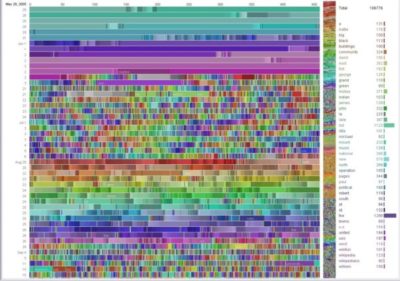Big Data and the future of work
 InformAll supported the Ethics of Big Data Group Research Group at the University of Cambridge and The Work Foundation in the running of a series of workshops, in October and November 2016, on Big Data and the future of work.
InformAll supported the Ethics of Big Data Group Research Group at the University of Cambridge and The Work Foundation in the running of a series of workshops, in October and November 2016, on Big Data and the future of work.
Details of the event are here; they explored how Big Data is reshaping the worlds of work, production and employment. They analysed whether the promise of ‘on-demand’ production and automated logistics drives the agenda for the ‘big data’ economy; explored the expanding role of the algorithms in task allocation and performance management for the quantified workplace as well as the impact of device proliferation, ubiquitous connectivity and the rise of social media on surveillance and profiling of employees.
Information literacy, and particularly data literacy most pertinent here, because employees, managers, business leaders, clients and customers benefit from acquiring an awareness of how Big Data impacts on them. Big Data is a critical part of the information landscape, and is become increasingly (even if subtly) ubiquitous. It represents opportunities, but also challenges, risks and sometimes even dangers; there is a need for understanding and know-how about what it means for individuals in the context of the evolving world of the workplace.
The workshops, were as follows:
- 17 October 2016 – Surveillance and employment relations in a data-saturated society
- 31 October 2016 – Managed by an algorithm? The rise of ‘on-demand’ working and the gig economy
- 14 November 2016 – The quantified self at work
- 28 November 2016 – Ethical perspectives on the use of automous computer systems on professional practices
All events took place at the University of Cambridge, Centre for Research in the Arts, Social Sciences and Humanities (CRASSH).
Photo credit: Fernanda Viégas, “Chromogram”, on Wikipedia – CC BY 2.0
![InformAll [logo]](https://www.informall.org.uk/wp-content/themes/informall/assets/img/informall-logo.svg)